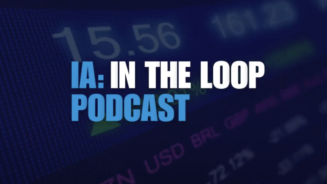“This is a strategy that has been around for 15 years. The idea is to invest in companies that are providing solutions to environmental challenges, such as population growth and rising living standards, which is also a pretty exciting growth area,” according to the former utilities analyst, who has been managing the fund since its inception in 2004.
What began as a niche investment product decades ago has blossomed into one of the top-performing ethical funds, with more than £140m ($171m) assets under management, according to FE analytics. Three-year performance stands strong, consistently beating the FTSE Environmental Technology Index and not far behind the MSCI ACWI tracking equity returns.
The fund invests in four main resource-related areas: energy, water, waste and materials, and sustainable food and agriculture.
“We are typically investing in industrial tech, utilities, materials and consumer stake companies. Part of our world is to make sure people understand we are not in the business of exclusion,” says Jenkyn-Jones.
“Incorporating ESG thinking into stockpicking and delivering superior returns reduces scepticism. It is about working with people who want their capital to have a positive impact.”
Jenkyn-Jones is keen to point out that, unlike its competitors, Impax has been able to quantify the positive impact that investing in the fund’s portfolio has had.
Stellar picks
The figures show that investing £10m per year in the fund is equivalent to taking 4,700 cars off the road for a year or generating enough water for more than 20,000 households. It is also akin to generating enough renewable electricity to power more than 4,000 homes, as well recovering and treating waste produced by 1,000 households.
Jenkyn-Jones is keen to highlight the Environmental Markets Fund’s third-largest holding, Clean Harbors, a US-based hazardous waste disposal company.
It has been instrumental in cleaning up the US Gulf Coast in the wake of the Deep Water Horizon BP disaster in 2010, which leaked an estimated 3.19 million barrels (more than 130 million gallons) of oil into the Gulf of Mexico.
Another great pick is Japanese technology firm Horiba, which produces equipment for testing and monitoring emissions in the automotive industry.
According to Jenkyn-Jones, the company has experienced a surge in demand for its real-time testing technology in the aftermath of the Volkswagen emissions scandal that broke in September 2015.
continued on the next page





